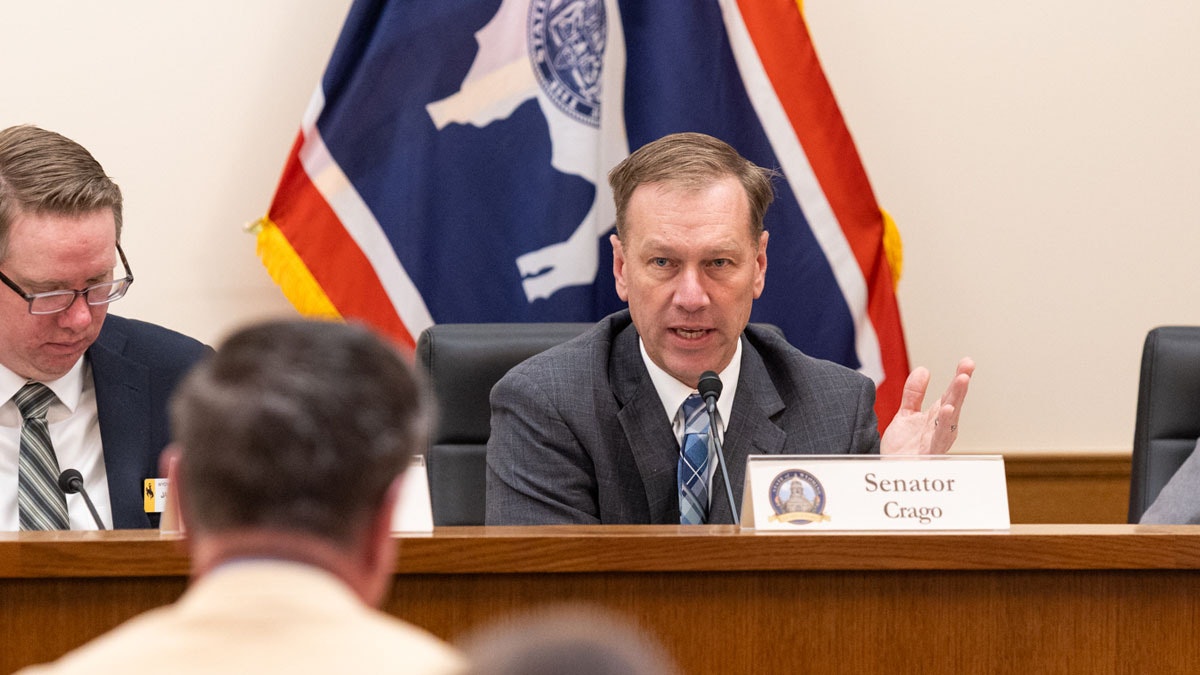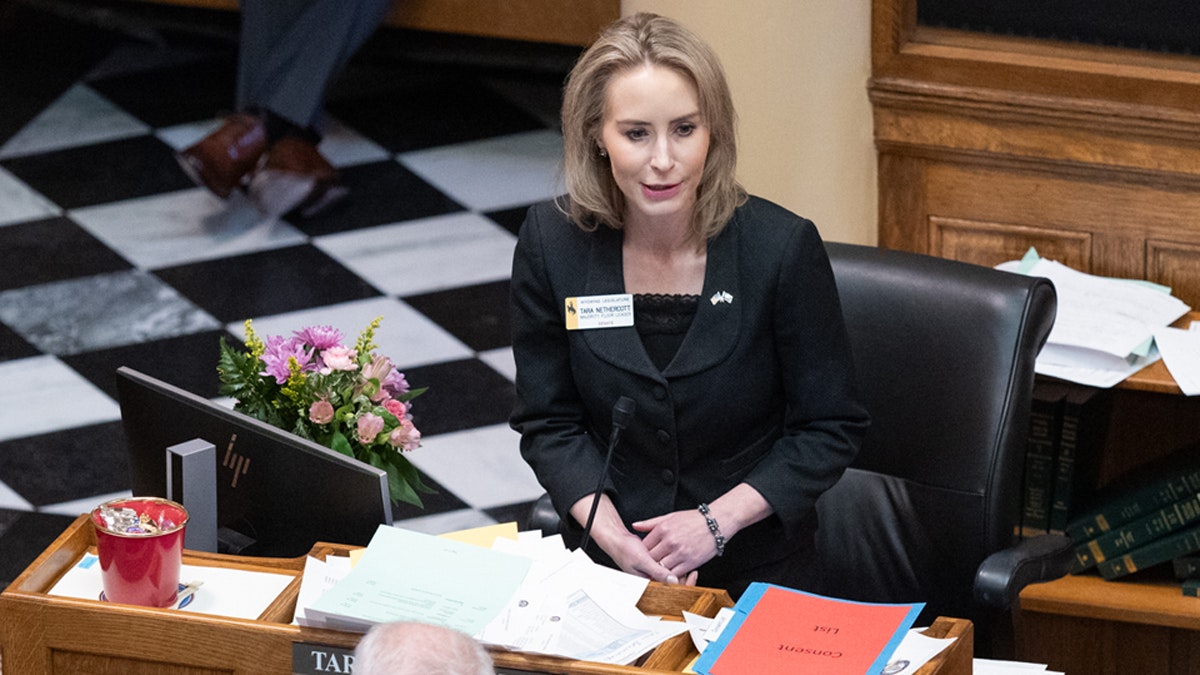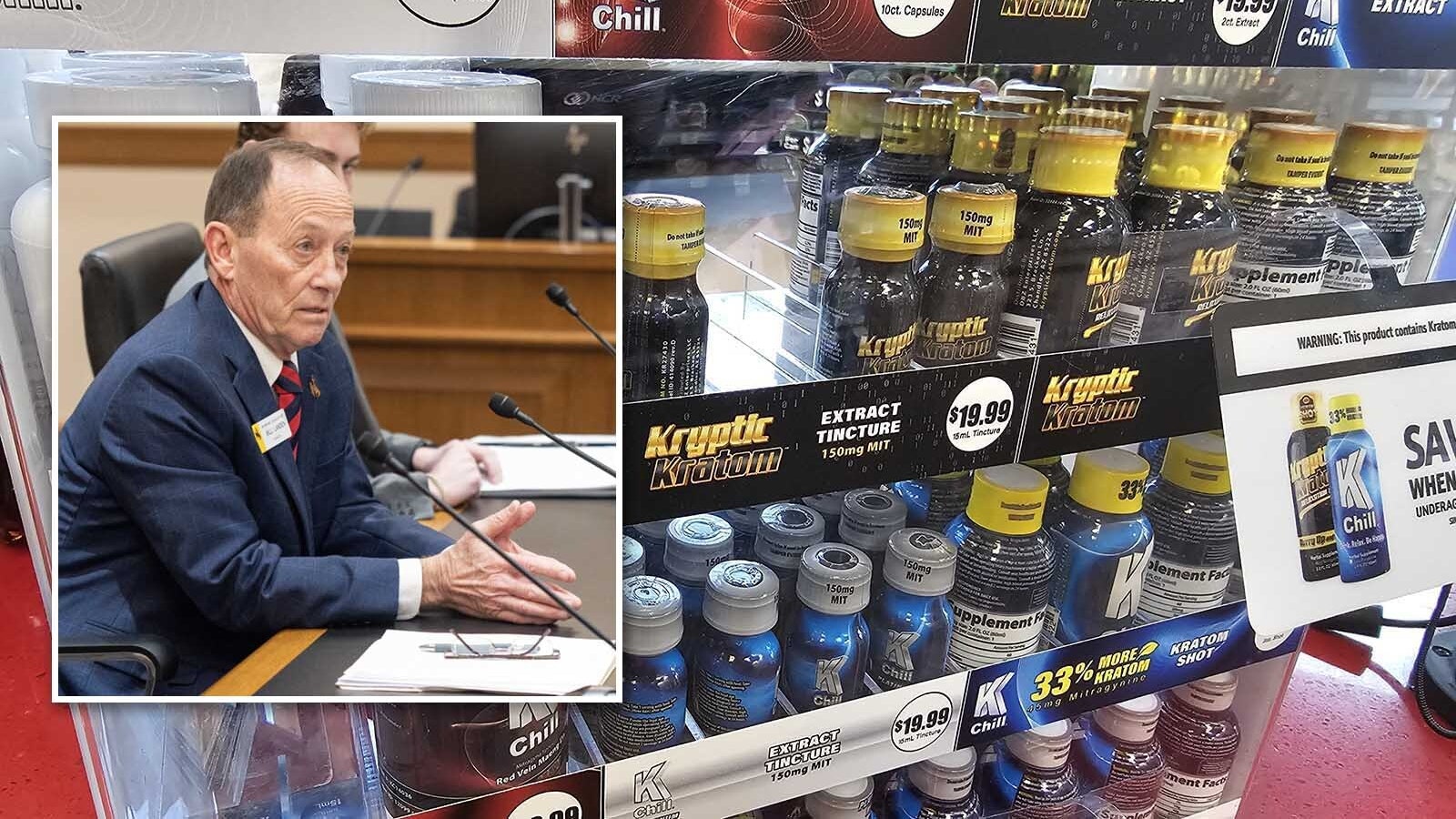When Rep. Bill Allemand, R-Casper, testified at a hearing of the Bar Nunn Town Council last month, he didn’t expect the fierce pushback he received from Mayor Peter Boyer.
Allemand was quickly told to leave the meeting after testifying against a proposed nuclear development by Radiant Energy. He said Boyer had told him to “sit down and shut up." (Boyer denies saying those words).
Rep. Jayme Lien, R-Casper, was escorted away from the microphone during a Natrona County School District 1 Board of Trustees meeting last month after sharing her thoughts on a cross-dressing custodian at a local elementary school after the public comment segment had already expired. She said one of the board trustees had accused her of lying.
The instances signify increasing contention between state leaders and their local counterparts, over high-profile issues. City and county leaders say they are becoming increasingly at odds with state lawmakers, who argue they are just doing their duty.
Inappropriate Authority
Gunnar Malm, chairman of the Laramie County Commission, said he respects the right of state officials to testify at his Board of Commission meetings. Rep. Gary Brown, R- Cheyenne, most recently spoke out against the Laramie Range Wind Project during a public comment period last month, without incident.
Despite this, Malm is wary of state leaders who use his meetings as a venue to air grievances rather than doing so through the legislature, he said. Malm said he is aware of some state officials who threaten county leaders while testifying, leading to heightened animosity.
“They are residents and voters in the County in which they testify so it is their right,” he told Cowboy State Daily via text message. “I would say threats made to local government to utilize their legislative authority to harm local governments is probably inappropriate, especially in cases where the member of the legislature’s threats are not associated issues, like being opposed to a land use issue and threatening to cut revenue to local government.”
Malm also said he is becoming frustrated by what he sees as a misunderstanding of local government by state leaders. This makes arguments with legislators grow tense as arguments become increasingly misconstrued.
“I think a better understanding of local government and how it functions by members of the legislature would be beneficial,” he said. “A lack of knowledge of how things work leads to legislation that is detrimental to local government and the communities they serve.”
“Looking for state solutions to every local problem is the antithesis of small government and the notion that government closest to the people being best suited to solve problems,” he added.
Begging For Scraps
Converse County Commissioner Robert Short said he too has navigated difficulties with state leaders who testify on local issues. He specifically mentioned Secretary of State Chuck Gray and his decision to speak out against the Pronghorn H2 project in Glenrock.
Short said state leaders who channel their authority through the local public hearings is akin to having drowning out others’ voices during crucial conversation.
“I think that in the case of someone who wants to dominate the conversation, and it's maybe out of their wheelhouse, I think that's rather distasteful and really maybe more in line with the campaign approach, rather than actually looking out for the best interests of the citizens,” he told Cowboy State Daily via phone.
Short added that he believes in a strong county government that should not have to rely on the state to survive. State leaders tend to play both sides of this argument, he said.
The ongoing debate surrounding property tax cuts is a key example of this, he said. Executing as much as a 50% cut would make local jurisdictions more dependent on state dollars to make up for the losses and could give state leaders even more sway over local conversations, Short said.
“There's a somewhat opposing kind of philosophy that’s been positive, that counties and municipalities shouldn't rely on state government for general funds,” he said. “However, you know, that's diametrically opposed to the effort to eradicate property tax, which is obviously a direct funding mechanism for these, these local entities.”
“In colloquial terms, we’re the peasants begging at the king's table for the scraps, which is just antithetical to what the founders saw as necessity for this state and for local entities to be able to fund operations that serve the local constituency.”
This is why Short said he believes county governments must remain strong and in control of their affairs.
“The state will never be able to service the needs of each county's residents on a responsive basis there, unless you want the state government to quadruple,” he said.
State Duty
Lien told Cowboy State Daily that despite being escorted away from the microphone in Natrona County, she still feels it is her duty to ensure her voice is included in local conversations.
“The one thing about the local entities is that they are still bound by state laws, and there is accountability on the state level,” she told Cowboy State Daily via phone. “When our constituency calls us as a state leader and says ‘my local leadership is not listening, they're not following state laws,’ and they give examples, that is justification for a state leader to come in and say ‘what's going on here?’”
She also pushed back against the suggestion that state leaders should keep their discussions with local leaders private. The focus of government should be transparency and cooperation, Lien said.
“There's a line that has to be drawn, though, because the public wants to be heard, and there shouldn't be closed door meetings on every topic,” she said. “Local governments and state governments have to cooperate, because you're all serving the same constituency.”
With respect as the focus of every interaction, Lien said she believes state and county officials can continue to have productive conversations.
“I think the county and municipality level, they have to really decide what is the role of government,” she said. “I think as long as everybody's treating everybody with dignity and respect, there's no reason that public officials can't speak at other public meetings.”
Division and Drama
Gillette Mayor Shay Lundvall said he feels that visits by Sen. Troy McKeown, R-Gillette, to his city council meetings should be turned into private conversations, instead of public debates. The senator this summer accused the council of making closed-door nuclear deals without informing the community.
Such an accusation, Lundvall said, would have been easier to talk about in private, instead of a public forum.
“It would have been an easy phone call, an email, something that would have negated any of those concerns, and would have gladly shared exactly what took place and how it all kind of went down,” Lundvall said via phone call. “If Senator McKeown had an issue, he could have picked up the phone… But that's not what took place.”
Lundvall told Cowboy State Daily prior that potential, future non-disclosure agreements aren’t always up to a city board, and can depend on how closely a particular company guards its proprietary information.
The mayor argued that state officials who enter local meetings need to focus on “staying in [their] own lane” and trust local officials also have their constituents’ interest in mind.
“I want to be able to have conversations, and we need to have good, good relationships with our representatives and our senators representing our area,” he said. “But on the same hand, they also need to respect the fact of where, where their work starts and stops, and where ours needs to really pick it up, and need to have those conversations.”
“It creates division when there's unnecessary drama, when there doesn't need to be that,” he added.
Echoing that sentiment was Boyer, who in September demanded Rep. Bill Allemand exit a city council meeting after Allemand raised concerns about the creation of a local police force.
“While I do appreciate Bill Allemand’s desire to be a part of the process, he's not a member of this community, and he's got really no say in on any of this,” Boyer said. “So for him to come in and tell us whether we do or do not need a police department, first of all, his opinion is irrelevant.”
Local government exists to solve problems that cannot be fixed at the state level and is therefore best left to local officials, Boyer said.
“At the state level, they don't have the time or resources or manpower to pour into trying to balance hundreds of municipalities budgets,” he said. “It’s such a dangerous precedent for this republic to strip that away, because we’re supposed to be a bottom-up government.”
This story has been updated with a response from Bar Nunn Mayor Peter Boyer to a claim made by state Rep. Bill Allemand.
Jackson Walker can be reached at walker@cowboystatedaily.com.





